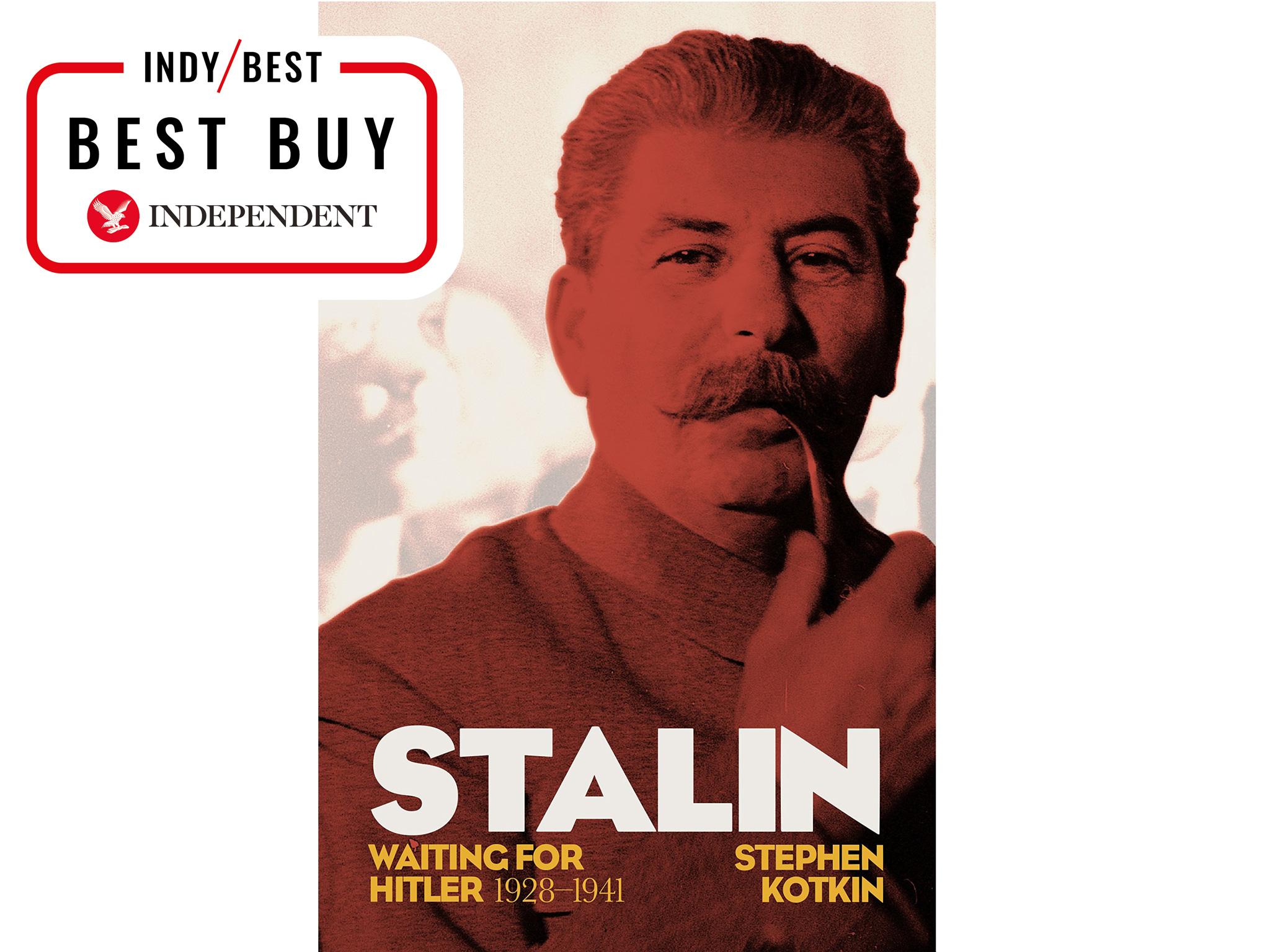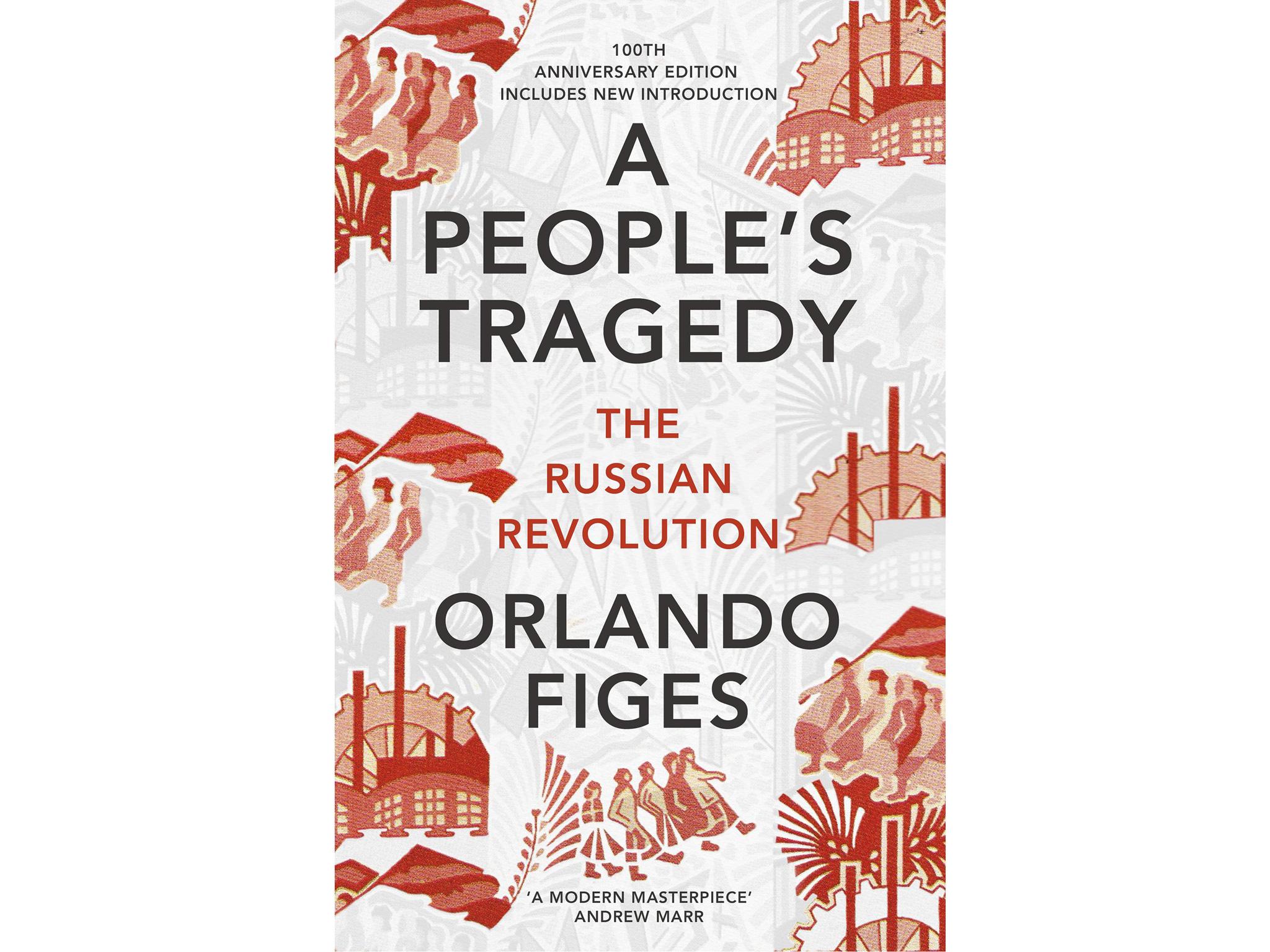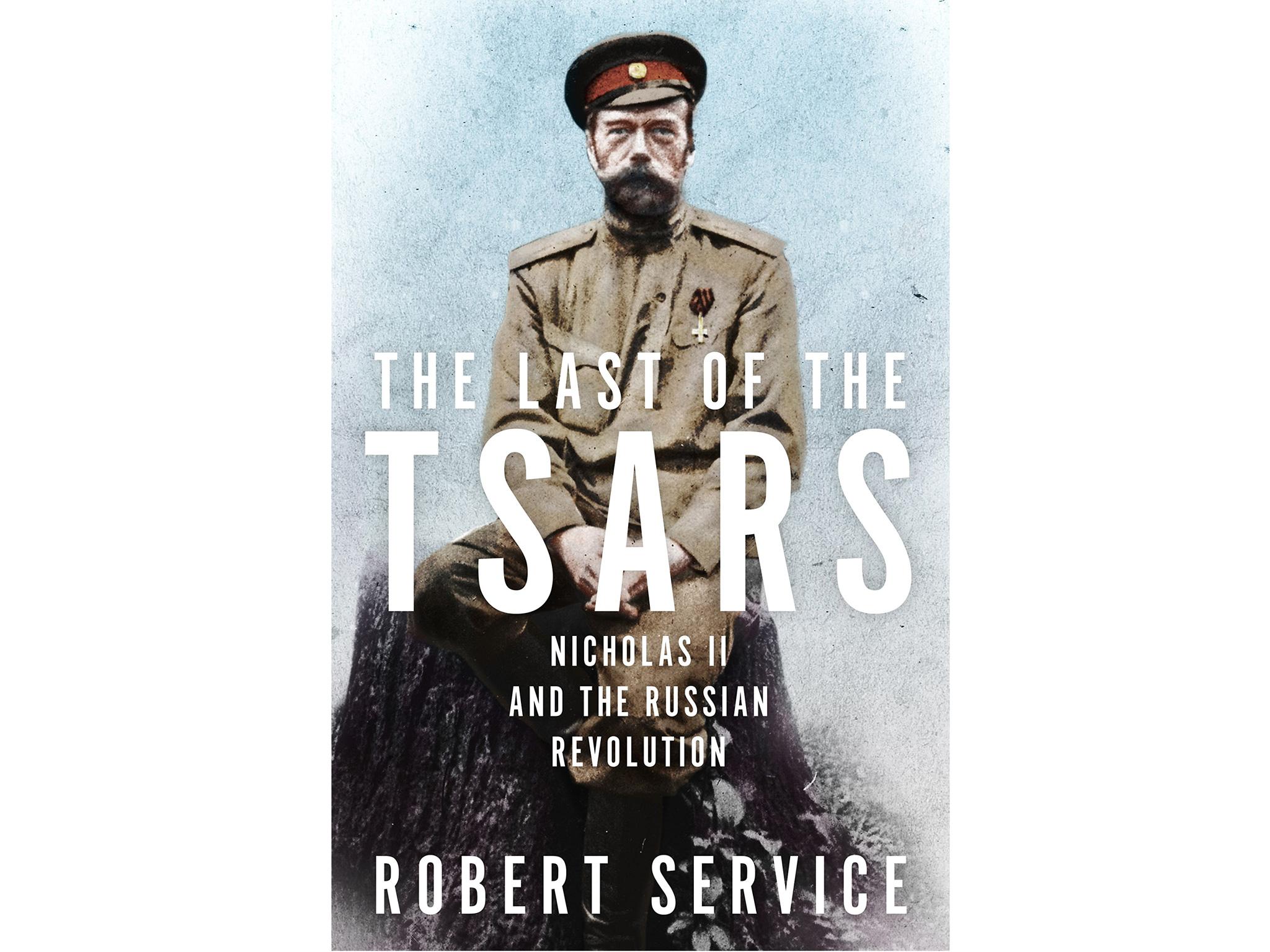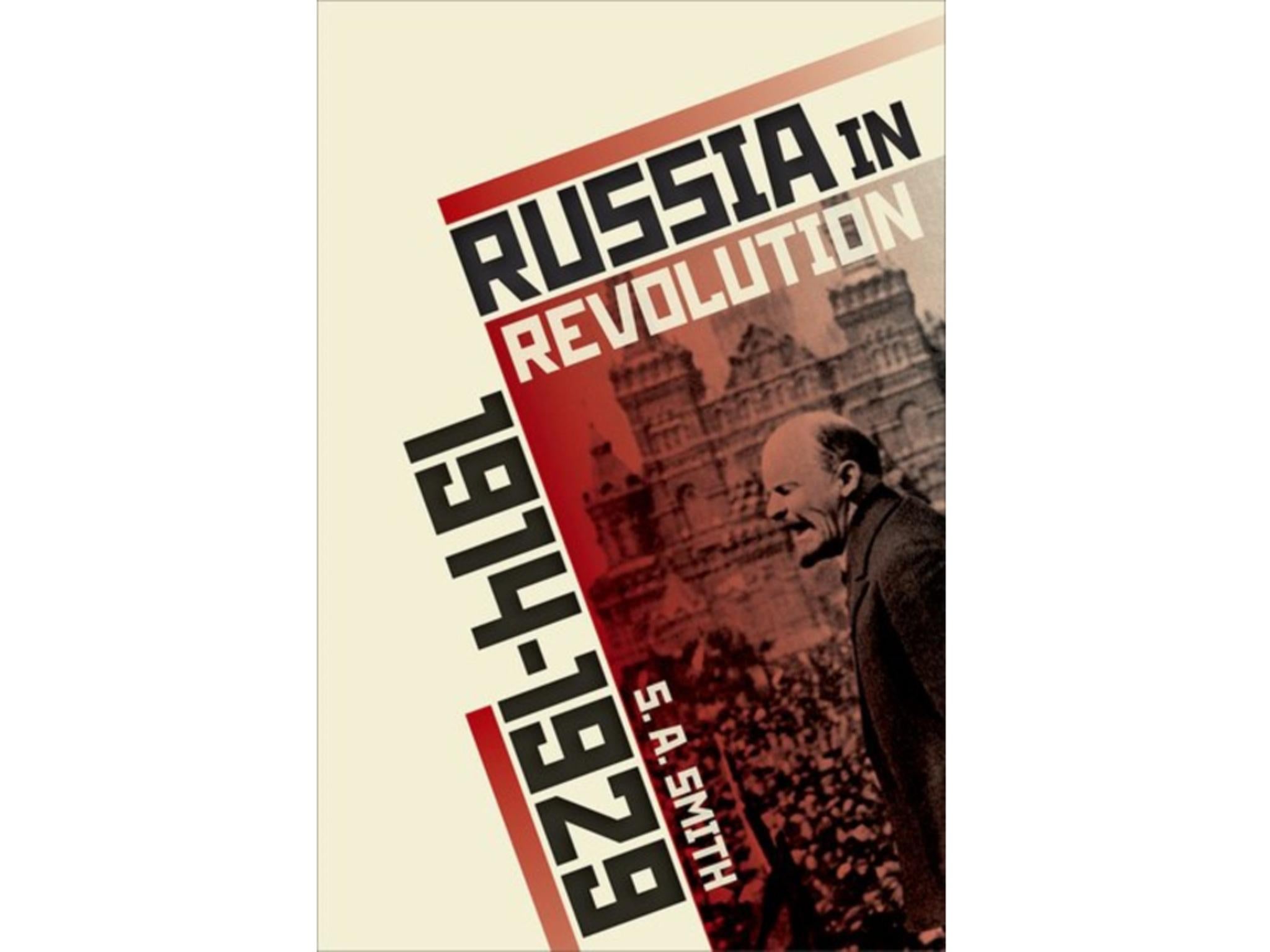The Independent's journalism is supported by our readers. When you purchase through links on our site, we may earn commission. Why trust us?
6 best Russian history books
A century after the Bolsheviks captured the Winter Palace, we round up the most illuminating new releases tackling the October Revolution, its prelude and its aftermath

The past year has prompted a predictable flurry of Soviet-themed activity to mark the 100th anniversary of the October Revolution. We've seen talks, thinkpieces, debates, articles, exhibitions and, of course, dozens of new history books, the best of which we collect here: polemical histories, lengthy biographies of prominent players in the Bolshevik drama and, of course, the more general histories of the Revolution for those seeking a broader portrait.
Were it not for the Bolshevik triumph in 1917, many of the 20th century’s most familiar controversies – the Cold War and its proxy conflicts, the arms race, the space race and the rise of Nazism, fuelled in part by Hitler’s Judeo-Bolshevik bogeyman in Moscow – may never have been. For its drama, its characters, its prelude, its subsequent horrors and the colossal shadow it has cast over the past 100 years, the story of 1917 and its after-effects is one that warrants infinite retelling – something that all of the authors here do exceptionally.
Stalin, Vol. II: Waiting for Hitler, 1928-1941 by Stephen Kotkin: £35, Allen Lane

Stephen Kotkin’s 800-page colossus of a biography, Waiting for Hitler, is only the second in a three-volume biography of Iosif Vissarionovich, the Georgian bandit who would become the 20th century’s second most recognisable dictator: Stalin. The first volume, Paradoxes of Power, involved a lot of scene-setting as the young Stalin was absent for many of the grand events that led to the Bolshevik Revolution (he spent much of the First World War in dreary Siberian exile). This new volume covers Stalin’s life from 1928, through the famine and revolutionary terror of the Thirties, all the way up to 1941 with Hitler’s invasion of the Soviet Union. As Kotkin acknowledges in his introduction, whereas Stalin was absent from the first volume for chapters at a time, in this new volume he appears on nearly every page – something that makes Waiting for Hitler a fascinating, fastidious enquiry into the mind of a burgeoning tyrant.
A People’s Tragedy: The Russian Revolution 1891-1924 by Orlando Figes: £20, Bodley Head

Orlando Figes’s chronicle of the final days of Tsarism and the violent Bolshevism that arose from its ruins is an epic in size, scope and insight, and a classic in its genre. Historian Figes’ book was originally published in 1996 and drew praise from critics of the right and left for its novelty as he probes the reign of Nicholas II and deftly diagnoses the ailments that led to its spectacular demise in 1917. The book has its protagonists but Figes tends to focus on Russia overall rather than follow individual characters: as implied by the title, A People’s Tragedy succeeds most in capturing the sheer popular immensity of the upheavals in 1917-18, with all of Russia rising up first against the Tsar and then, with the onset of civil war, against itself. With its perfect balance of analysis and anecdote, A People’s Tragedy is surely among the most readable books on the Russian Revolution and the decades of tumult that made it possible – or inevitable. This new edition, published for the centenary, features a freshly written introduction and more than 100 photographs.
Red Famine: Stalin’s War on Ukraine by Anne Applebaum: £25, Allen Lane

Anne Applebaum is a historian and journalist who has already published two exquisite books on Stalinism: Gulag, a history of the work camps in which millions perished, and Iron Curtain, which recounts the spread of Stalinism through Central and Eastern Europe following the Soviet conquest. In this most recent book, published last month, Applebaum tackles the Soviet famine and argues, as historians have done before, that the famine in Ukraine was a uniquely nefarious effort on Moscow’s part to starve the Ukrainians into submission. It remains a point of controversy – even in Waiting for Hitler, Kotkin refutes the notion of a Ukrainian genocide, ascribing the Soviet catastrophe to Stalin’s utilitarian callousness rather than a “War on Ukraine”. Controversies aside, Applebaum’s book is a well-argued and typically perceptive history of Ukraine and the tragedies it endured under the Soviets.
The Last of the Tsars by Robert Service: £25, Macmillan

Given his ample bibliography – brimming with histories and lengthy biographies of Bolshevik luminaries – Robert Service is something of a titan in the world of Soviet historiography. In his latest book, The Last of the Tsars, he recounts the story of the man whose inadequacies prompted the collapse of his dynasty. As with most of the books on this list, Service’s book provides a picture of Russia beyond the individual – the dissolution of the Russian Empire, the brief liberal bloom as embodied by Kerensky’s government, the Bolshevik uprising – but the best bits come when Service focuses in on the smaller and more intimate details of the Tsar’s life after abdication, of his final days imprisoned and doomed to execution. The Last of the Tsars is a compelling and timely addition to an already formidable catalogue.
Russia in Revolution: An Empire in Crisis by SA Smith: £25, Oxford University Press

SA Smith is an Oxford historian who has published books on, among other subjects, revolutionary Russia and revolutionary China (and a handbook to communism). Like Figes, Smith begins his book by delving into the early years of Nicholas’s reign, identifying the cracks in Tsarism that would, in time, deteriorate and lead to the Romanovs’ ruin. He ends his book in 1928, just as the fervour, violence and chaos of 1917 is beginning to settle and give way to a newer menace: Stalinism, the period during which the revolutionary precepts of 1917 would be put into practice. What Smith’s book might lack in colour and verve it makes up for in pithy brevity: at just under 400 pages (with big font) Russia in Revolution is a refreshingly incisive history that gives the reader everything they need to know to blag some knowledge for the centenary.
October: The Story of the Russian Revolution by China Miéville: £18.99, Verso

China Miéville is an author of science fiction novels and the only writer in this article who is openly sympathetic to the Revolution – or, at least, the notion of revolution. Miéville is not a flagrant apologist for the copious crimes of the Bolshevik regime (unlike some, he readily acknowledges the violence, turmoil and tyranny that emerged from 1917) but his vision of the Bolshevik Revolution is markedly less pessimistic than most other histories. True to his calling as a storyteller, Miéville’s book is a readable narrative of revolution featuring all of the familiar protagonists, antagonists, plots and counterplots that arose in the wake of the First World War. Part of the point of writing and publishing new books on subjects as exhaustively studied as the Bolshevik Revolution is to provide readers with novel perspectives and this is something at which China Miéville excels.
The Verdict: Russian history books
Despite its intimidating size, Stephen Kotkin’s Waiting for Hitler is a gripping account of the twilight of the Revolution and the advent of Stalinism. Whereas the other books collected here predominantly focus on the chaos of the revolution itself (the Romanovs’ downfall, the Provisional Government, the parades, protests and uprisings) Waiting for Hitler is a study of the revolution in practice, of what happens when the gunfire stops and the governance begins.
Anne Applebaum, too, studies the practical consequences of revolution in Red Famine, but there is plenty to read for those who are more interested in the October Revolution causing all of this centennial buzz. Even after some two decades, Orlando Figes’s People’s Tragedy can still be called the go-to history of Russia’s revolutionary period, but Russia in Revolution, October, and even Robert Service’s Last of the Tsars all provide readable, comprehensive portraits of this century-shaping year in Russian history.